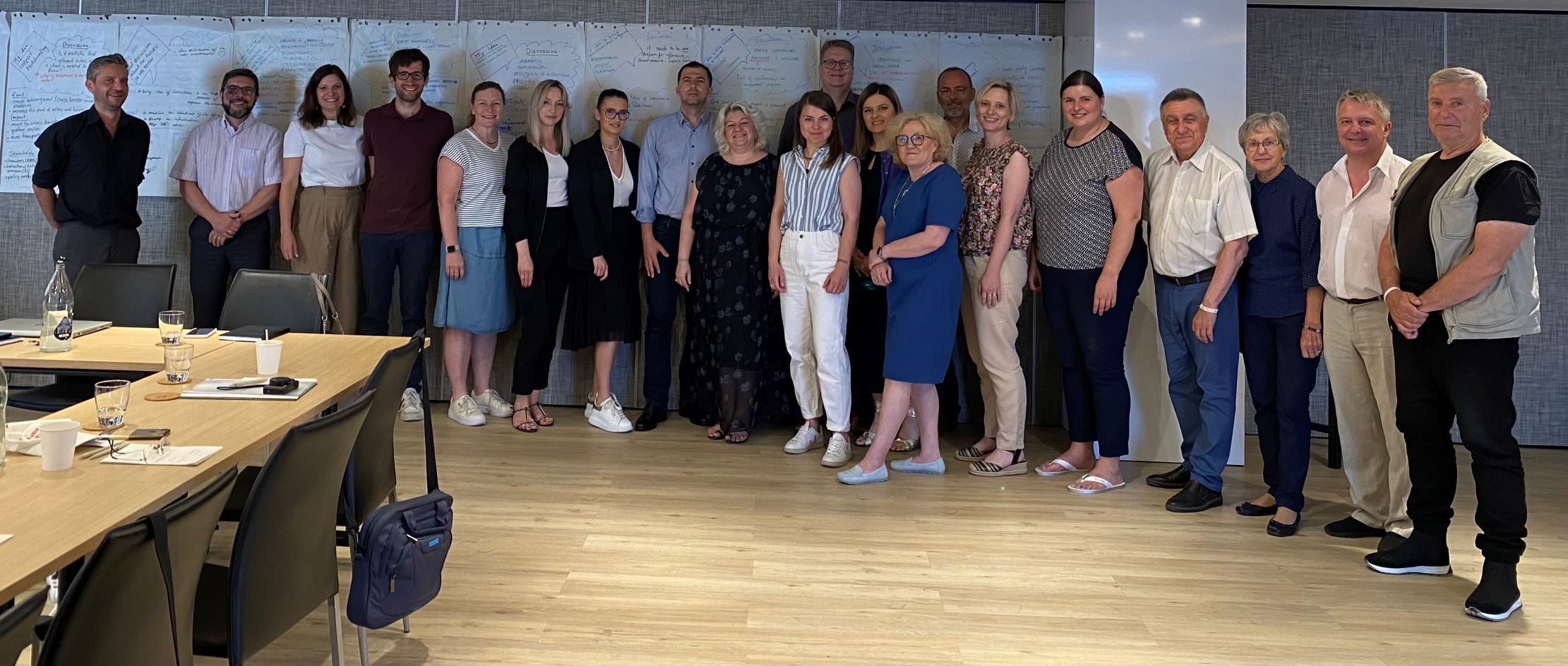
Bringing business transfer back on the agenda
The STOB regions partnership gathered together for a two day workshop on the topic of "Bringing business transfer back on the agenda".
"After the creation and growth of a business, transfer is the third crucial phase in its life cycle." - Commissioners Tajani and Hahn, Foreword of Guidebook No. 3 - Facilitating Transfer of Business 2012.
STOB regions project addresses the challenges of this third phase of business transfer in 9 EU regions.
There has been a strong focus on start-ups across Europe, however, of equal importance is ensuring the survival of existing businesses. Safeguarding SMEs, arguably, has a higher impact on jobs and growth. This is reinforced by the fact that the success rate of transferred businesses is higher than that of start-ups.
The STOB regions partnership brings a range of different experiences and levels of expertise, including regional authorities and business support institutions. The interregional approach explores and examines the challenges faced by succession and seek to find new or improved methods to support business transfers.
€2,316,488.00
SME competitiveness
Over 3 years of sharing experiences and participating in interregional learning, the partners benefit from improved knowledge on the various approaches across the regions. Peer reviews and workshops on specific topics related to business transfer will help promote the learning process and improve the implementation of ESIF programmes. STOB regions also offers input to the debate on both a European and regional level,encouraging greater attention on business transfer in the future cohesion policy with two high-level dissemination events.
The strength of having a wide range of institutions involved guarantees knowledge sharing between regional stakeholders, feeding into the learning process as well as into regional action plans, a key output of the project. These plans will contain concrete projects that build on the good practices identified and transfer new ideas to partner regions with recommendations made for a future regional strategy to support succession. They will be implemented and monitored in the second phase of STOB regions.
Watch the video to hear partners' testimonies on the added value of Interregional cooperation!
The ESF Operational Programme (OP) for Brandenburg is based on the strategy of ‘good work for everybody and sound transition into the labour market’. The focus of the programme – which totals EUR 452 million – is to improve the competitiveness of enterprises by enhancing the quality, innovation, security and flexibility
of the labour market and workforce.
Under the ESF OP, there is one specific objective which STOB regions would like to address :
Enhancement of start-ups and company succession
The aim of the specific objective and the respective funding programme is to create new and to secure existing jobs through pilot services, start-up workshops and start-up support at universities. Against the backdrop of deteriorating dynamics in the field of
entrepreneurship and the still high level of unemployment, the support of startups
and - becoming more and more important - business succession should be encouraged as one way for innovation, economic growth and for keeping skilled people in the region.
According to a panel from 2012 7% of all companies (4.000 SMEs with more than 40.000 employees) in Brandenburg are looking for a successor/buyer in the next years. 29% of these companies did not have a solution for the transfer of business. With the ESF funding Brandenburg wants to contribute to successful transfers.
Smart Growth shares the strategic aims of Scotland's Smart Specialisation Strategy - the Scottish Government's Economic Strategy - to increase labour market participation, business competitiveness and investment in research and development. Efforts are focused on achieving long-term and sustainable growth by increasing investment in Scotland's assets and resources - skills, research capacity, clusters and niche products and services, approaches to finance and investment and partnership structures.
The Smart Specialisation sectors are Creative Industries, Energy, Financial Services, Food and Drink, Life Sciences and Tourism.
Scotland already possesses the resources required to achieve the country's growth potential. It is home to internationally renowned academic institutions capable of transferring invaluable knowledge to the Smart Specialisation Sectors and SMEs making up 99% of Scotland's business base. This knowledge transfer would equip SMEs and sectors to build a stronger Scottish business base.
However, a major risk associated with achieving this objective is sustainable SMEs that continue to contribute economically and have succession strategies that see viable going-concerns successfully transferred.
Today there is no policy instrument defined on regional level to support ToB, however, the framework for the Danish implementation of ESF and ERDF has room for the purposes of business transfer. In other words, there is a fit with the programmes, but not all means to implement the programmes are defined. Through this project we want to explore how we can improve the implementation of Business Transfer in our region. The Action Plan as a basis for getting funding from the Danish OPs should be improved to address the vast need for guidance in connection with Business Transfer.
In the past, sub-regional efforts have been made to address a part of some 6,000 regional Business Transfers envisaged during the coming 5 years. In one programme, Business Development Funen received 5 times the demand to their programme.
It is imperative that the issue of Business Transfer is addressed, because:
- Owners are notoriously unrealistic about the value of their business. A programme to assist a common sense nominal evaluation based on future cash flows gained through the “current state” of the business and calculated by an independent and impartial body would be more meaningful.
- Owners do not know who to contact to proceed into the process of business transfer and seldom understand how the company should be sold.
- Owners could benefit from a programme that would put their company into the best shape possible under the current owner, in order to benefit as much as possible from a sale
With ROP MR14-20 government of Małopolska Region supports development of main areas of social and economic life. MRPO 14-20 concentrates on supporting of innovativeness and R+D, rising competitive strength of SME, urban regeneration, transport, labour market and education.
Axis 3 of ROP MR 14-20 (Enterprising Małopolska) concerns creating the conditions for stable economic growth through support to SME.
Measure 3.2 of Axis 3 (Promotion of Entrepreneurship and potential of business environment institutions) concerns creating the conditions for innovative business concepts and potential of business environment institutions.
Indicators:
- number of advanced services providing by business environment institutions;
- number of business environment institutions, supported in services professionalization.
Operations projected withinthe Measure 3.2 are directed for new entrepreneurs (functioning no more than 24 months), especially based on new technologies.
However, the process of supporting business transfer is equally important, especially from the perspective of public policy. The reason is fact that the second generationmay be interested in implementing innovations in inherited companies. New technologies combined with experience can bringa new quality and help company to be more competitive.
Axis 3 of ROP MR provides support for business environment institutions, which provides advisory servicesto SME. It is worth to branch out their offer with business transfer issues.
Sustainable growth and jobs 2014 - 2020 - Finland's structural funds programme' has five priority axes and 13 specific objectives. Each project must deliver at least one of these specific objectives. Total budget is 2,598,922,190.00 € and total EU contribution is 1,299,461,095.00 €. 70,9% of the programme is dedi-cated to Northern and Eastern Finland as sparsely populated areas facing stronger challenges.
KE will rely on TO3 Competitiveness of SMEs, and especially 3a - Promoting entrepreneurship, in particular by facilitating the economic exploitation of new ideas and fostering the creation of new firms in business hubs.
TO3 Competitiveness of SMEs is focused on generating new businesses. Funding criteria include 1) he start-up of new enterprises and the development of new business, 2) improving business expertise and internationalisation skills, 3) investments and development projects in SMEs that promote growth, internationalisation andcompetitive-ness, 4) the development of business clusters, business networks and other forms of business co-operation, and 5) transport and logistic connections as well as smart transport solutions that support SMEs.
Items 1,2,3, 4 may / can be linked to economy renewal through generation shift processes. This is an objective is part of the regional development plan of Kainuu region. Its implementation relies on ESIF, national, regional, and private funding.
The National Strategy for Small and Medium-sized Enterprises 2014-2020 is a political document in accordance with EU policy in this area and this policy is implemented through Operational programme "Innovation and Competitiveness" 2014-2020 (OPIC)
Thematic Objective 3 (TO3)
Priority areas of the strategy are: Encouraging entrepreneurial activity; Providing appropriate regulatory and administrative framework for SMEs by applying the "Think Small First"; Improving conditions for SMEs to access foreign markets;
For Entrepreneurship
- Create and maintain an environment in which entrepreneurs can thrive and entrepreneurship is rewarded: care for future entrepreneurs, in particular by encouraging entrepreneurial interest and talent, particularly among students, young people and women by easing the conditions for starting a business; easing access to finance through existing and new programs by priority start and more;
Transfer of business: Measures aimed at the smooth conduct of the transfer of business: public campaigns, mentoring schemes of the process, creating a fund to Bulgarian Development Bank to finance the process of transfer business
The implementation of the indicative measures under this investment priority aims at achieving a positive effect on the development of a sustainable market competitiveness of the Bulgarian SMEs.
Since 2012 Ilfov County Council has been developing an intensive SMEs support program structured on three levels of action: creating and developing support mechanisms for businesses based on an active partnership within the triple helix, administration/ science /business; promoting entrepreneurship among the young by getting the academia involved; managing financial instruments, financed by public, private or structural funds made available to the start-ups.
Ilfov County Council policy can refer to three Operational Programmes, as follows: Competitiveness Operational Programme, Regional Operational Programme and Human Capacity Operational Programme. Ilfov County Council received a LoS also for the Regional OP but wants to focus in the STOB regions project on the Competitiveness Operational Programme as the policy instrument addressed with the scope to improve its provisions with regard to Transfer of Business.
In the next funding period we need to improve the following features of this policy:
- Developing business support centres by investing in human capital and by providing SMEs specialized services;
- Stimulating the business of start-ups and SMEs already active by organizing networking events
- Promoting an evolving business environment that will favour the increase of entrepreneurial initiatives, including the social groups that have a limited presence in this sector
Operational Programme for the Implementation of the EU cohesion Policy 2014-2020 is a centralised OP for territorial development of Slovenia, covering all 11 Thematic Objectives. Our goal is to improve priority 3: Development and implementation of new business models for SME-s especially in the connection with internationaliation, specific goal; increasing the international competitiveness of the SME-s, Measure: development, implementation and improvement of business models and encouragement of the excellency in SME-s.
The program itself support development of business models, improvement of development of business processes, value chains, optimisation of innovation potentials of SME-s. The specific topic of transfer of business is not tackled by the programme. Existing support measures do not support the transfer of business and its specific questions and development challenges of SME-s facing with transfer of business.
Therefore existing SME support measures has to be upgraded and develop approaches that can be used to foster the transfer of business and at the same time improve the cooperation between support organisations and SME-s in their endeavour to pay specific attention to the needs of SME-s in the process or in the preparation phase for transfer of business.
Andalusian ERDF OP 2014-2020, consistent with the 2020 Strategy and cohesion policy, aims to contribute to smart, sustainable and inclusive growth and to achieve economic, social and territorial cohesion in Andalusia.
Its Thematic Objective 3 (TO3), based on improving competitiveness of SMEs, indicates that "avoiding the disappearance of SMEs due to the lack of continuity, through the promotion of the generational replacement" is a need in the region, where an important number of companies are disappearing in the generational change.
This issue is especially relevant considering the fact that the weight of private sector in Andalusia is smaller in comparison to Spain and the EU and that most enterprises are considered microenterprises (enterprises in Andalusia are also smaller than in other Spanish and EU regions, in average), which usually disappear when there is not a replacement of the activity by the new generations. This phenomenon is particularly damaging the economic tissue in rural areas and low populated areas, being Andalusia a very large region with vast rural areas and hundreds of villages with a high risk of depopulation.
Within the Andalusian ERDF OP 2014-2020, its Action Line 3.3 aims to “Support to the business consolidation of SMEs and entrepreneurs, by promoting new management models and facilitating its access to advanced services. In particular, it observes the development of activities to support the generational replacement”.

The STOB regions partnership gathered together for a two day workshop on the topic of "Bringing business transfer back on the agenda".
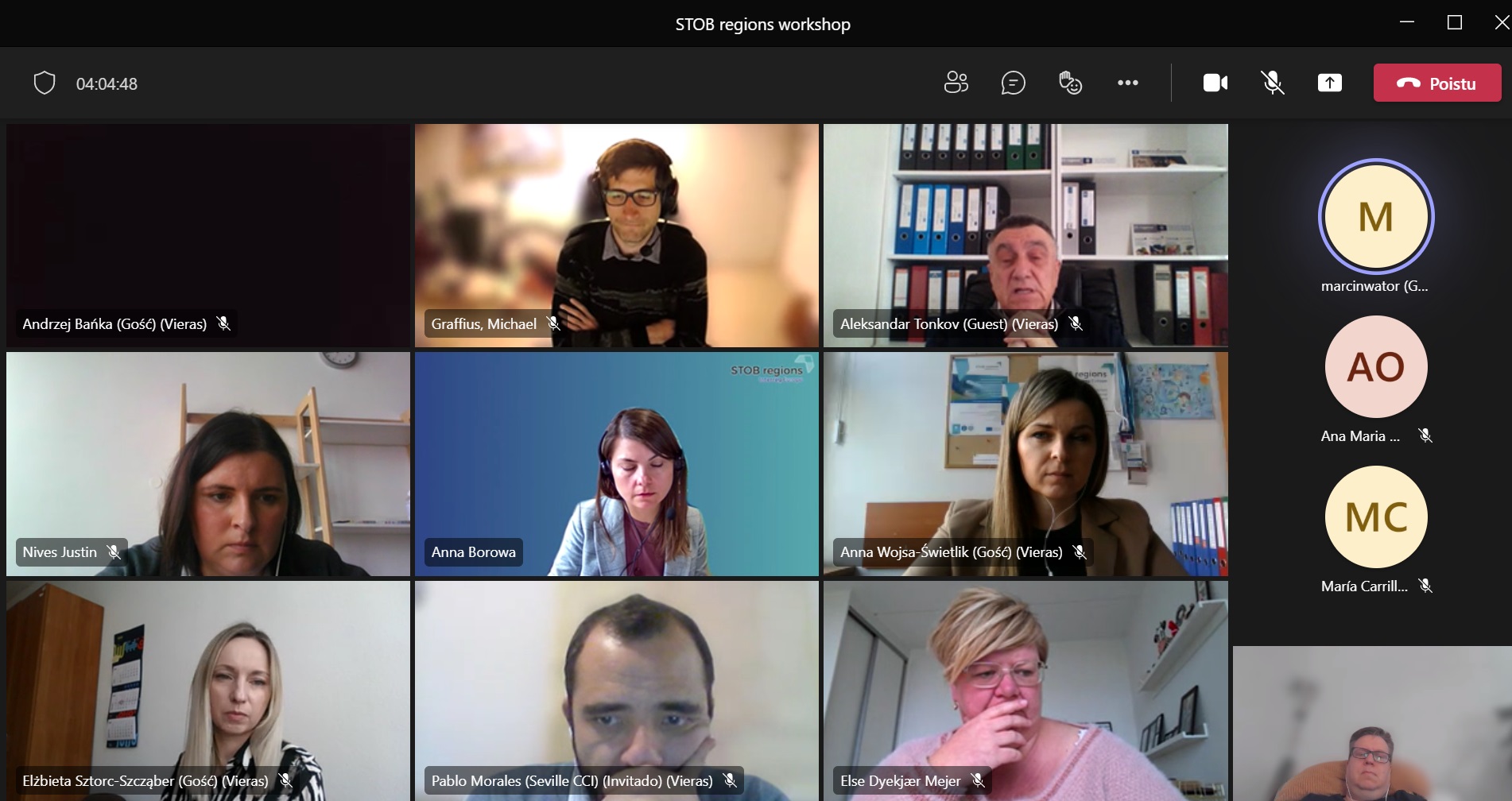
The partners of the Interreg Europe project STOB regions met online to discuss the effects of the COVID-19 pandemic to business transfers
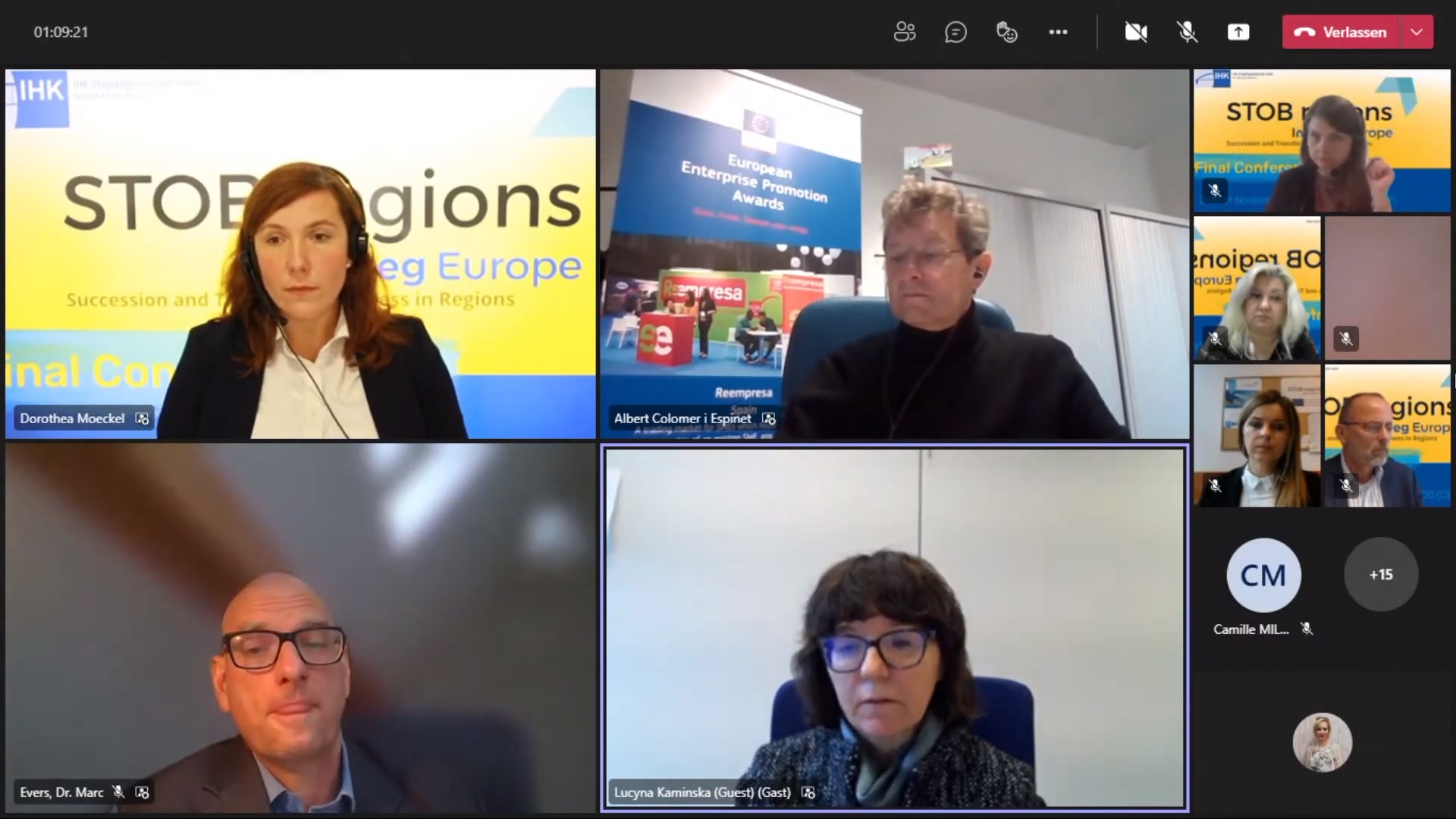
STOB regions project held a successful online Final Conference on 24th of November.

STOB region partnership will continue their efforts to address the effect of COVID19 pandemic to business transfer policies.

The first action plan to support to the transfer of businesses in the region of Brandenburg, Germany, developed by Lead partner IHK-Projektgesellschaft mbH, has...
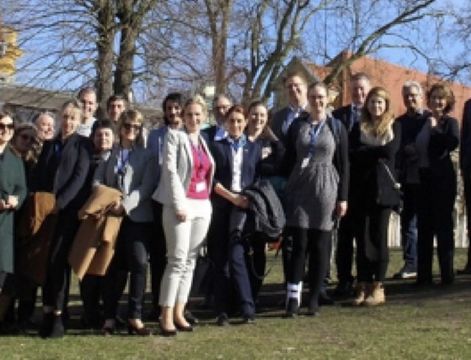
After a challenging yet highly insightful interregional policy learning period spanning the past three years, it is a pleasure to announce the action plans of t...
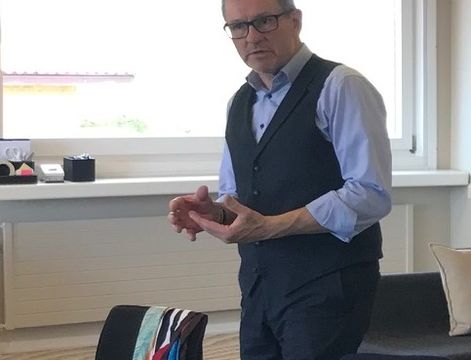
On the 29th October 2019, Business Development Centre Vaeksthus Southern Denmark (PP3) held a mini conference at Trinity in South Denmark. The conference focuse...
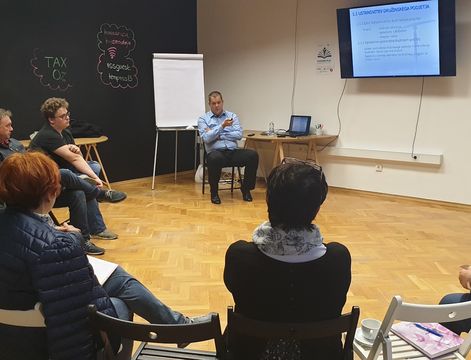
BSC Kranj, project partner of STOB Regions project, has completed the second cycle of workshops for family businesses that are already considering transferring ...
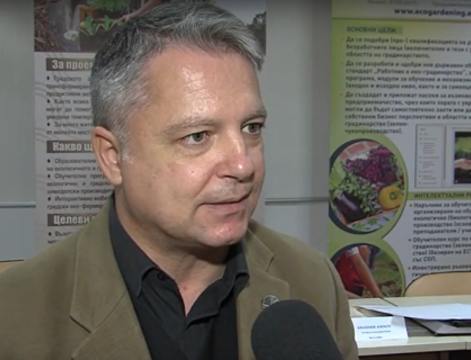
Velizar Petrov, Executive director of project partner Regional Development Agency with the Business Support Centre for SMEs, Plovdiv presented and was video int...
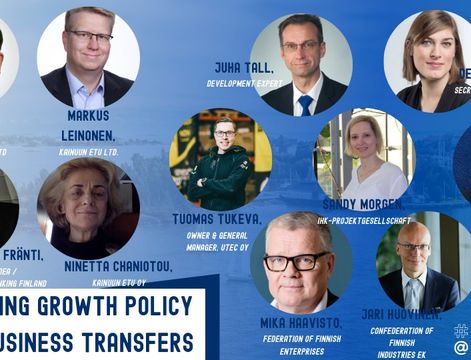
On Wednesday 27th November 2019, STOB regions Interreg Europe project contributed and shared results and solutions of “regions promoting business transfer” ...